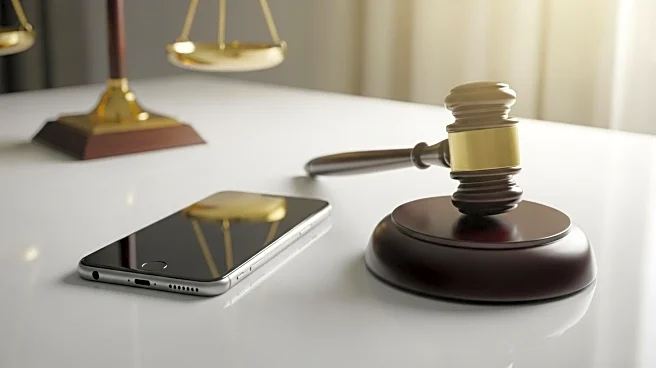What is the story about?
What's Happening?
Qualcomm is currently undergoing a trial in the UK initiated by the consumer rights organization Which?. The lawsuit accuses Qualcomm of abusing its market dominance in the smartphone chip sector by charging inflated prices and licensing fees to major companies like Apple and Samsung. These costs were allegedly passed on to consumers, affecting millions of smartphone users in the UK. The trial, which began at the Competition Appeal Tribunal in London, is expected to last five weeks. If successful, the lawsuit could result in a payout of £480 million, equating to approximately £17 per affected smartphone user. Qualcomm has previously denied these allegations, asserting that the case lacks merit.
Why It's Important?
The outcome of this trial could have significant implications for the smartphone industry and consumer rights. If Qualcomm is found guilty, it may set a precedent for how tech companies are held accountable for their pricing strategies and market practices. This could lead to increased scrutiny and regulation in the tech sector, potentially affecting pricing structures and competitive dynamics. Consumers stand to benefit from potential compensation and more competitive pricing in the future, while Qualcomm and similar companies may face financial and reputational repercussions.
What's Next?
Should the trial conclude with a ruling against Qualcomm, a second trial will be held to further examine Qualcomm's conduct and the damages suffered by affected consumers. This could lead to broader investigations into Qualcomm's business practices and possibly influence regulatory policies in other jurisdictions. Stakeholders, including tech companies and consumer advocacy groups, will likely monitor the proceedings closely, as the case could impact future legal actions and industry standards.
Beyond the Headlines
The trial highlights ongoing concerns about market dominance and anti-competitive behavior in the tech industry. It raises questions about the balance between innovation and fair competition, and the role of regulatory bodies in ensuring consumer protection. Long-term, this case could influence how tech companies approach licensing agreements and pricing strategies, potentially leading to more transparent and consumer-friendly practices.















